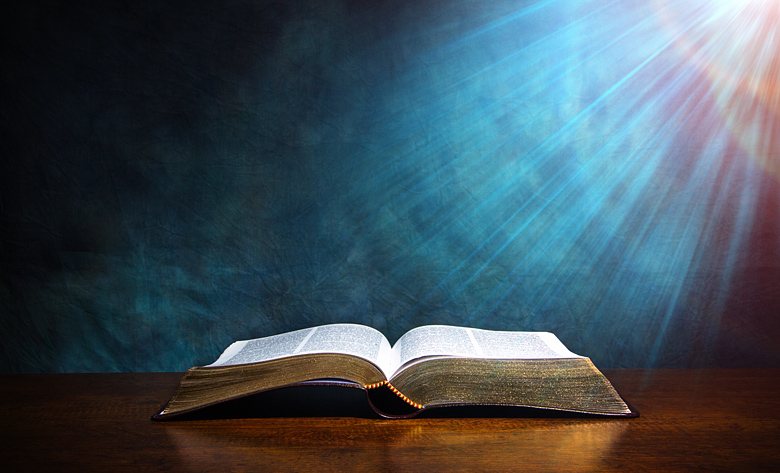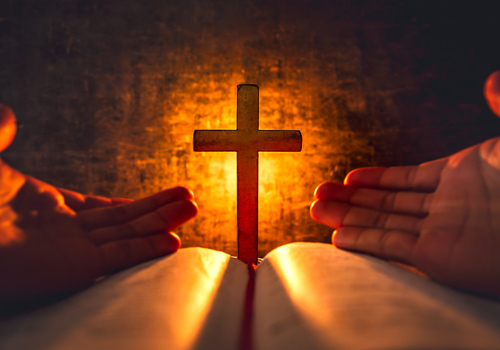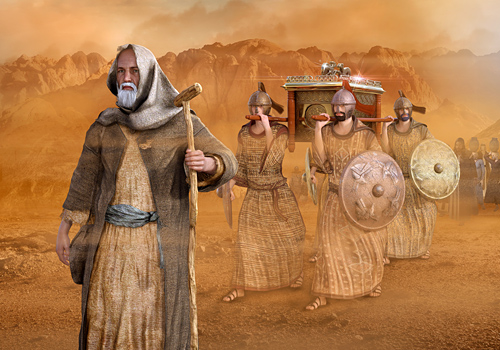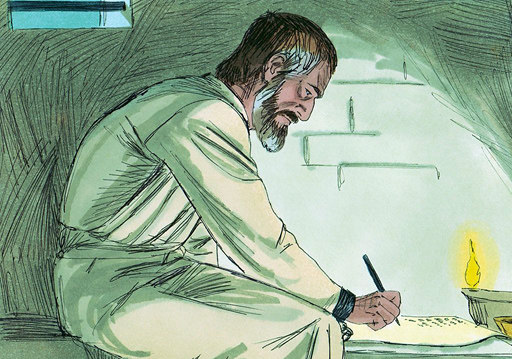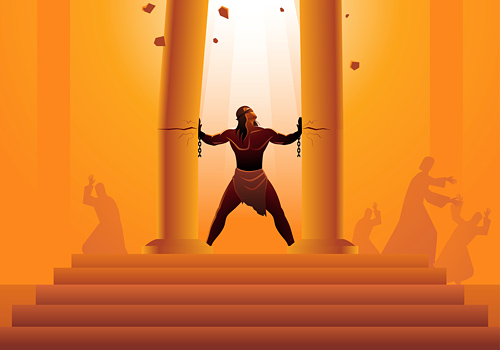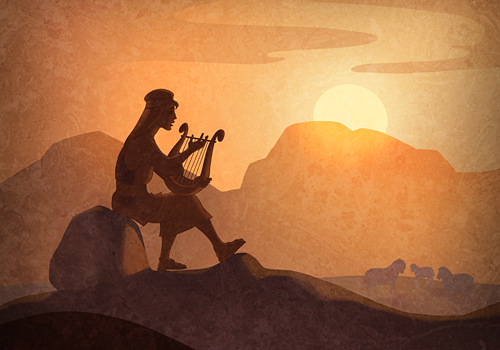The 66 Books of The Bible
This is a very new page and I'll fix it up soon... It's very rough at the moment. It was pasted in from a private document I made in 2018, to help me learn something about every book in the Bible. I figured I might as well make it a public document as I continue to work on it...
I got the idea from "The New Pastor's Handbook" by Jason Helopoulos, p.62. Which said to "Memorise an outline for each of the 66 books so you know what they contain". Another similar book of advice for pastors listed one of the very top things to do was learn your English Bible really, really well. A few of the comments I've written came from a YouTube video which I've forgotten the title of, but I'll track it down and provide a link to it soon.
The guides to pronunciation are my own invention and don't follow any formal system. Capital letters mean that syllable is accented. Where I've used the three letters "eye", it means to say it like the word "eye" that you see with, the same as the name of the English letter "i".
THE OLD TESTAMENT
The OT has 39 books.
Genesis
JEN-ess-iss. Covers the Creation up to the death of Joseph. Can be thought of as in two parts, before and after Abraham. Abraham's son Isaac was the father of Jacob (who was later also named Israel). Jacob/Israel's 12 sons were the founders of the 12 tribes of Israel.
Genesis is a long book (the second longest in the Bible). A lot happens in it, and it probably has more famous Bible stories than any other book apart from the Gospels. Including the Creation, the Garden of Eden and the Fall, Cain and Abel, Noah and the Flood, the Tower of Babel, God's promise to Abram/Abraham, the destruction of Sodom and Gomorrah, many more stories of Abraham and his descendants, the 12 patriarchs, and the story of Joseph and his adventures in Egypt.
Exodus
(EX-oh-duss). Starts with the birth of Moses. Covers the Israelites escaping from slavery in Egypt.
Leviticus
(lev-IT-ick-uss). The Levites were one of the 12 tribes, sons of Levi. They were the priests. So the book of Leviticus is sometimes called the Book of the Priests. It contains a lot of laws and is also sometimes called the Book of Laws.
Numbers
In the Hebrew Bible this book is called "In the Wilderness" and it describes the Israelites wandering in the desert led by Moses. The English name of Numbers refers to two censuses of the people that were done in this period.
Deuteronomy
(doo-terr-ON-omm-me). "Deuteronomy" basically means the second (or repeated) giving of the Law (of Moses). Moses gives the Israelites his final instructions for entering the promised land.
Joshua
Conquest of and entering the Promised Land.
Judges
Spiritual decline of the generations after the conquest. "In those days there was no king in Israel: every man did that which was right in his own eyes." (21:25)
Ruth
Despite the spiritual decline of his people, the Lord still works behind the scenes to save them.
1 and 2 Samuel
Covers the first two kings, Saul and David.
1 and 2 Kings
Covers Solomon up to the division of the kingdom into Israel in the North and Judah in the South. Then the invasion and exile of the North (Israel) in 722 BC by the Assyrians. Then the invasion and exile of the South (Judah) and the destruction of its capital Jerusalem in 586 BC by the Babylonians. Told from the perspective of the prophets.
1 and 2 Chronicles
Retells the "entire" story of Israel but from the perspective of the Levites, the priestly tribe.
After the destruction of Jerusalem in 586 BC and then 70 years of exile in Babylon (Ezekiel and Daniel prophecy during the exile), ... ?
Ezra and Nehemiah
These books go together and are one single book in the Hebrew Bible. Tell how a remnant of the exiles received permission to return and rebuild Jerusalem. The two books cover about 100 years of history from 539 BC to 444 BC.
Ezra
(EZZ-rah) The beginning of the return from exile. The book of Ezra begins a very significant part of the ongoing story of God's people as they return from exile. In 539 BC the decree of Cyrus allowed exiles of all religions to return and rebuild their temples. The rebuilt temple is completed in 516 BC. In 458 BC Ezra himself returns. In 444 BC Nehemiah comes to Jerusalem to rebuild the walls.
Nehemiah
(NEE-hem-eye-ahh, it's possibly ok to say NAY-hem-eye-ah) Rebuilding the walls of Jerusalem. At the heart of the book's story is the mass public gathering to hear the Torah read and expounded.
Esther
How the Lord God protected his people and did not abandon the exiles who remained in Babylon.
Wisdom and Poetry Books
Job
(Rhymes with "robe" or "lobe"). About suffering and how to deal with it (stay faithful to God).
Psalms
(The "P" is silent, like the word "psychiatrist", so its pronounced like "salms" or "sarms").
Ps 1-41: Book 1 - Personal, many about anguish. Most by David.
Book 2 and 3 mainly national, linked to the temple choirs.
Ps 42-72: Book 2 - Multiple sources. 42-49 by "Sons of Korah" (the temple musicians). Others by Asaph (Ps 50), David and Solomon.
Ps 73-89 Book 3 by Asaph, Sons of Korah, Heman the Ezrahite, David, Ethan the Ezrahite.
Books 4 and 5 for public worship.
Ps 90-106: Book 4 - Meant for public worship. All but three are anonymous.
Ps 107-150: Book 5 - Contains several groups of Psalms. Some by David.
Proverbs
A collection of a very large number of short wise sayings. Most of them were written down by Solomon. Some were written by him and some were older and he wrote them down. A few were recorded by other authors.
Ecclesiastes
(ecc-LEESE-ee-as-tees). From Wikipedia: The title Ecclesiastes is a Latin transliteration of the Greek translation of the Hebrew "Kohelet", קֹהֶלֶת, the pseudonym used by the author of the book. The book is the musings of a King of Jerusalem as he relates his experiences and draws lessons from them, often self-critical. The author, who is not named anywhere in the book, or in the whole of the Bible, introduces a "teacher" whom he identifies as the son of David (1:1). The author does not use his own "voice" throughout the book again until the final verses (12:9-14), where he gives his own thoughts and summarises what "the teacher" has spoken.
The teacher discusses the meaning of life and the best way to live. He proclaims all the actions of man to be inherently vain or futile, as both the wise and the foolish end their lives in death. Kohelet clearly endorses wisdom as a means for a well-lived earthly life.
In light of this senselessness, one should enjoy the simple pleasures of daily life, such as eating, drinking, and taking enjoyment in one's work, which are gifts from the hand of God. The book concludes with the injunction: "Fear God, and keep his commandments; for that is the whole duty of everyone" (12:13).
Song of Solomon
This is the only Bible book with romantic love as its theme. It's a collection of poems about marriage and the time leading up to it. It's been also called an analogy for the love that God has for his people.
The overall theme of each of the prophetic books is the people's sin, the judgement of God, punishment, repentance, and finally restoration. Sometimes this sequence is repeated more than once within the same book.
The Major Prophets are only called "major" because they are longer, not necessarily more important (other than being longer and therefore containing more verses and words overall than the shorter books).
Isaiah
(eye-SAY-ahh, or sometimes eye-SIGH-ahh). He prophesyed (PROF-ess-eyed) about the kingdom of Judah and Jerusalem eight centuries before the birth of Christ.
Jeremiah
52 chapters. It's the longest book in the Bible (in the original Hebrew, Jeremiah and Genesis are even longer than the 150 chapters of the book of Psalms).
Jeremiah is known as the "weeping prophet". He prophesied (a.k.a. prophesyed) about the national emergency that culminated in the destruction of Jerusalem in 586 BC. "Jeremiah is the only prophet to have dialogues and monologues with God in the form of prayers about his tortured life. They are introspective, self-revelatory and biographical, more private cries of distress than prophetic. He is appealing and praying to God (in each prayer God is the addressee - thus it is a prayer) as a suffering human being not in his function as a prophet to the people of Israel, but perhaps as a complaint to the one who gave him the mission, which he considers to have failed. No one in biblical literature has felt this personal acute pain and its affect on his personal religious experience like Jeremiah. It is more burdensome than he could stand. God even tells him not ‘pray for these people, neither lift up or cry or pray on their behalf, do not intercede with Me, for I will not hear you’ (7:16). This puts him in an opposite position than Moses who always interceded for the people." http://www.moshereiss.org/articles/32_jeremiah.htm
Lamentations
Written by Jeremiah, mourning the destruction and capture of Jerusalem.
Ezekiel and Daniel
Two prophets who proclaimed God's word during the exile. Ezekiel, Jeremiah, and Daniel were contemporaries. Jeremiah began his ministry as a young man during the reign of King Josiah. When others were taken into captivity, Jeremiah was forced to join a remnant that ran off to Egypt and thus his ministry was restricted to that group. Daniel, if you’ll recall, was one of the young men that was taken to the king’s court in Babylon and eventually rose to the level of “prime minister”. As for Ezekiel, he was taken to the rivers of Babylon where, as slave labor, he and his fellow captives dug and maintained the canals branching off the Euphrates River. This was several miles from Babylon itself and it is here where Ezekiel performed his ministry.
Ezekiel
(ezz-EEK-ee-ell). p1601 Zondervan NIV Study Bible. "They will know that I am the Lord" is repeated ~65 times. More than any other prophet, Ezekiel, helps us to understand how idolatry arouses God to anger. Ezekiel's wife dies in 24:15-27. p1656 picture of Egyptian? temple. Ezekiel highlights Israel's unrelenting sins that culminate in the fall of Jerusalem (as also witnessed by Jeremiah). "A stranger book than the Book than the Book of Ezekiel does not appear in the Jewish canon. The author reports being of Ezekiel paralyzed, bound and dumb seven days after his call (for 430 days or perhaps for seven and one half years) yet nevertheless prophecies (3:4-6,26; 24:27; 33:22). Is he a speechless prophet? He eats scrolls, excrement, has his hair and beard cut off by a sharp sword or razor, into three separate parts to be burnt in three different places (5:1-2) and he flies from Babylon to Jerusalem (11:1). He writes of gruesome, and bloody events where human-like beings slaughter the people of Jerusalem except those they mark on the forehead as mourners (10:2-7). People die from his look or words (11:1-13) and he resurrects people (37:7-10). He is the only prophet to be ‘transported’ visionary (apparently four times - chapters 8,11, 37 and 43). He occasionally writes obscenely. In fact his prose easily rates as the most sexually explicit descriptions in the Bible. " http://www.moshereiss.org/articles/32_jeremiah.htm
Daniel
I really like the book of Daniel and I'll write up more soon...
The Minor Prophets are only called "minor" because they are shorter, not necessarily less important (other than being shorter and therefore containing less verses and words overall than the longer "major" prophetic books). In the Hebrew Bible all 12 of these books are combined into the one book.
In the generations before the destruction of Jerusalem (7 books):
Hosea
(ho-SAY-ahh). First and longest "minor" prophet book. Amos is a few years earlier. Contemporary of Isaiah. In the 8th century BC .ie. the 700s. He became a prophet at the end of the reign of Jeroboam II (the nation's last powerful king) and prophecied for the next 40 years, until just before Samaria fell to Assyria in 722/721 BC. During that time the country went rapidly downhill. Rejection of God and wholesale adoption of pagan religious practices :(. 2 Kings 14:23-17:41 gives the history of this period. After Jeroboam's death, Israel had 6 kings in just over 20 years, 4 of them assassinating their predecessors :(
Joel
3 Chapters in most English Bibles and 4 Chapters in most Hebrew Bibles. Joel is somewhat of a mystery as there isn't a direct description in the book of events that can be completely matched up with other events. Wikipedia says, "As there are no explicit references in the book to datable persons or events, scholars have assigned a wide range of dates to the book".
There is mention of a huge locust plague. It's not clear if these are actual locusts or a metaphor for an invading army.
Some people say it's the oldest of the prophetic books, and Joel could have possibly known Elijah and Elisha in his youth (Henrietta C. Mears, "What the Bible is All About", p.337). Mears also says Joel is traditionally called the Prophet of Pentecost because of the verses about the outpouring of the Holy Spirit, especially 2:28.
Amos
(AYY-moss). Well known for it's demand for socioeconomic justice. Martin Luther King Jr. quoted 5:24 "But let justice roll on like a river, righteousness in a never-failing stream". Israel is to be destroyed and then restored.
Obadiah
(oh-bad-EYE-ahh). 1 chapter only. The shortest OT Book, only 292 Hebrew words. God judges Israel's enemies, especially Edom (Esau's descendants).
Jonah
(JOE-nah). In the big fish
Micah
(MIKE-ahh). 7chapters. 8th century BC (the 700s). Contemporary with Amos and Hosea In the North i.e. Israel, and Isaiah in Jerusalem). His message is for Samaria and Jerusalem.
Nahum
(NAY-hum). 3 chapters. Prophecies of woe against Nineveh, the great capital city of the evil Assyrian Empire.
From the generation immediately preceding the destruction of Jerusalem, and may have witnessed it:
Habakkuk
(habb-AKK-ukk, or perhaps sometimes HABB-ahh-cook). 3 chapters. A dialogue between the prophet Habakkuk and the Lord. The Lord says he's bringing the Chaldeans (Babylon) to overthrow them. Habakkuk says he will stay faithful to the Lord. Habakkuk 3 is his song to the Lord. There are several references to it being a "song in the night" but I haven't found where that's mentioned in the Bible yet (that he sings it in the night).
Zephaniah
(zeff-ann-EYE-ahh). 3 chapters. From the generations of the remnant who rebuilt Jerusalem. Zephaniah would have grown up during a period of extreme immorality. King Josiah was crowned at age 16, who brought great moral reform to Jerusalem. Zephaniah wrote his prophetic book during Josiah's reign.
Zephaniah also prophesies the destruction of Nineveh (in 2:13), which was covered in more detail by the prophet Nahum.
Haggai
(HAGG-ee-eye). 2 chapters. Rebuilding the temple.
Zechariah
(zekk-arr-EYE-ahh). 14 chapters. In two parts. The first 8 chapters are mainly about return to Jerusalem, and rebuilding the temple. Chapters 9-14 are a lot different and write about the "end times", and includes several prophecies about Jesus.
Malachi
(MAL-acc-high). 4 chapters. Bridge between the Old and New Testaments. It's about 100 years after the Jews had returned to Jerusalem from exile in Babylon. Their initial enthusiasm had waned and they became morally slack. Ref. Henrietta Mears.
THE NEW TESTAMENT
The NT has 27 books.
Matthew
Jesus birth with his exile into Egypt as a baby, Sermon on the Mount, Sheep and Goats, Great Commission at the end.
Jesus is the messiah fulfilling the OT
Mark
The shortest gospel, nearly all of it is contained in Matt and Luke. Jesus is a suffering servant and a model for his followers.
Luke
Written by a Gentile doctor. Has more stories about healings etc and Jesus good deeds. Jesus the messiah fulfils God's plan by seeking and saving the lost.
John
A lot different to the other three gospels. More about abstract things. Is evangelistic. Jesus the messiah gives eternal life to everyone who believes in him. Has no narrative parables or exorcisms.
Acts
Written by Luke (is Volume 2 of "Luke"). is history (obviously). Has lots of speeches. Gives examples of how to preach. The very word "Acts" denotes a style of literature in the ancient world that describes the great deeds of cities or people. So the book of Acts describes the beginnings of the church. And its message is that Jesus the messiah continues to fulfil God's plan by expanding the early church in the face of opposition through the spirits power.
-----
My exam for NT covers the three major letters of Paul (1 Corinthians, Galatians, Colossians); three more letters of Paul (the pastoral epistles); and three non-Pauline books (Hebrews, James, Revelation).
I made a lot of my own notes for the books in the exam, I'll paste some of that in here or on separate pages soon...
Paul wrote 3 kinds of letters: Individual letters (named after the recipient); Occasional letters to address a particular problem (often in a church); and general letters to all churches.
These 13 letters are arranged in the order of longest to shortest, except where more than one letter has the same name (and then each of the letters with that name is arranged from longest to shortest).
Romans
The greatest letter in the history of the world. The gospel reveals how God is righteously justifying unrighteous individuals (both Jews and gentiles) at this stage in the history of salvation. This happens by faith in Christ apart from the law covenant and it happens ultimately for God's glory. Romans and the rest of the NT heralds this gospel, which has two parts. First, Jesus lived, and died, and rose again for sinners. 2. God will save you if you turn from your sins and trust him. That gospel is what the NT heralds, and that's the churches mission, to herald that to all the peoples of the Earth, through the spirit's power.
1 Corinthians
[EXAM] - God's holy people (all Christians) must mature. God's holy people will become what we already are ?? .. Will not tolerate sin, we will build each other up, we will strongly affirm Jesus' bodily resurrection. In Morling notes, I think the official theme of 1 Cor is for churches and Christians to not disagree with each other (there's a verse maybe 1 Cor 1:10) which is the "point" of the book.
2 Corinthians
(13ch) - near the end Paul writes about all his hardships, like being shipwrecked 3 times. The ESV Archaeology study Bible has a shipwreck photo which I found inspiring. God shows his power through human weakness.
Galatians
[EXAM] (6ch) -Paul's most critical letter of his audience. Some Galatians have been saying Christians need to be circumcised and follow all the laws of Moses. Paul says "You foolish Galatians!" Justification by faith, esp Gal 2:16. And v17 too. And much of the surrounding text. Guards the gospel. Both Jews and gentiles are justified by, and continue to live by, faith in Christ, not by the works of the law. Fruit of the spirit Gal 5:22. G for Galatians, G for grace. Pawson gives his own translation/paraphrase of Galatians. Luther said it was the best book in the Bible and "This is my epistle. I am married to it."
Ephesians
(6ch)(Prison, General letter) - "Ephesians is the quintessential Pauline document, summing up many important themes of Paul's letters and his ministry as the Apostle to the Gentiles. The church (both Jewish and gentile Christians) must maintain the unity that Christ powerfully created. "A peach of a letter; which summarises the whole Christian message in 6 chapters". Ephesians, Colossians, and Philemon were written at the same time, and sent by the same person (Pawson says this).
Philippians
(Prison) - Joy in the face of hardship which is endured happily for Jesus. Exhorts God's holy people. Conduct yourselves in a manner worthy of the gospel. I found Philippians (perhaps just Ch 1) extremely inspiring (esp on one night approx. late July 2018) reading it i bed before sleep) and it helped me a lot to feel motivated again re Bible College and serious commitment to living as a disciple of Jesus.
Colossians
[EXAM] (Prison, Occasional letter) - seemed to me like a "mini" version of Ephesians. "...the relationship between Colossians and Ephesians - There are significant similarities." The Supremacy of Christ. Heralds that Christ is supreme. And that is the basis for the letter's many commands. Also about not following some kind of pagan (similar to "new age") teachings. The town had a mixed population and many different religions, and a mix-bag faith similar to New-Age today. Many scholars have debated exactly what false teachings Paul is writing against but there is no clear answer.
Ephesians, Colossians, and Philemon were written at the same time, and sent by the same person (Pawson says this).
1 Thessalonians
( 5ch?) to Thessalonica (thess-al-on-IKE-ahh) - Walk live in light of Christ's imminent coming
2 Thessalonians
(3ch?) - Christ will return and set all things right, especially by judging his enemies. "Those that don't work don't eat". Some comments re everlasting destruction of unbelievers. Stay strong to your faith in Jesus Christ. Shun "Christians" who don't live right.
--
(Paul wrote 3 letters to young pastors, i.e. the pastoral epistles)
1 Timothy
[EXAM] (6 chapters) - Those in the church , esp church leaders, must oppose false teaching and be Godly. 1:4 Advancing God's work -- which is by faith. Ch2: Pray, dress modestly, women be submissive and don't teach men. Ch3: Qualifications for overseers and deacons. Ch4: In later times some will abandon the faith and believe things taught by demons. Ch5-6 Widows, elders and slaves, don't love money - if we have food and clothing, be content with that.
2 Timothy
[EXAM] (4 chapters) - Written from jail not long before Paul is martyred. Paul exhorts persevere for the gospel. 2 Tim 1:7 The spirit God gave us does not make us timid, but gives us power, love and self-discipline. 2 Tim 2 - endure suffering for the gospel of Jesus. 2 Tim 3 begins "But mark this: There will be terrible times in the last days. People will be lovers of themselves, lovers of money, boastful, proud, abusive, disobedient to their parents, ......". 2 Tim 4 has people will gather teachers who say what their itching ears want to hear.
Titus
[EXAM] (3 Chapters) - exhorts do what is good by the grace of God. Titus is a rag-bag of instructions (similar to those given in 1 Timothy) about the character and responsibilities of church leaders.
Philemon
(figh-LEE-mon) (Prison, Individual letter) - Paul's most personal letter, only one chapter, about the slave going back. It's message is that you should love your Christian brothers and sisters regardless of social barriers, by valuing them above yourself. "Oh-NESS-imm-us". Ephesians, Colossians, and Philemon were written at the same time, and sent by the same person (Pawson says this).
----
These 8 letters are arranged in the order of longest to shortest, except where more than one letter has the same name (and then each of the letters with that name is arranged from longest to shortest).
Hebrews
[EXAM] - The message of Hebrews is that Jesus is better. So persevere. Don't fall away from the faith. Jesus is better than prophets, than angels, than Moses, than Joshua, than any high priest in the old covenant. Jesus' sacrifice is better than any under the old covenant. Jesus' Melchizadekian (mel-KIZZ-ah-dek)ian priesthood is better than the levitical priesthood. Jesus' new covenant is better than the old covenant. Jesus is better. So persevere. [Starts off comparing the new covenant as being better. Then talks about faith and persevering, giving examples in Ch.11. Ch.12 is encouragement and that suffering is not to be feared, endure hardship as discipline/chastening because we are legitimate (not illegitimate or slave etc) children of God in God's family. See there is no root of bitterness nor sexual immorality. Ch 13. Remember them that are in bonds/prison as if I was together with them in prison, and those who are mistreated. Be sexually pure. Keep my life free from the love of money and be content with what I have.
James
[EXAM] - says a lot about works. Faith works. Genuine saving faith must become evident in how we endure trials, and how we treat the poor, and how we speak, and how we relate to the world.
Peter 1 and 2 exhort Christians who are facing persecution and false teachers.
1 Peter
(5 chapters) - stand firm in God's grace. Persecution is to be expected for Christians. Suffering helps us become greater in the afterlife. 4:12 Do not be surprised at the fiery ordeal. 5:7 Cast all your anxiety on him because he cares for you. John MacArthur's video sermon "You must listen to this message if you always seem to struggle".
2 Peter
Beware of false teachers. 2 Peter and Jude have many overlapping verses.
1 John
is a comforting letter about assurance of salvation (check this with the book by John MacArthur). You can know that you have eternal life in three interlocked ways. 1. by believing in Jesus. 2. by living righteously, and 3. by loving believers.
2 and 3 John - these exhort believers.
2 John
walk in truth and love, by not supporting deceivers.
3 John
Work together for the truth, by supporting those who spread it.
Jude
Exhorts those who God is keeping for Jesus, contend for the faith against grace perverting immorality. Jude and 2 Peter have a lot of overlapping verses.
Revelation
[EXAM] - A vision, given by Jesus Christ to the Apostle John. Written in "apocalyptic" language similar to some of the OT prophets (e.g. parts of Daniel). The purpose is to comfort and encourage Christians by revealing future realities, future events. Providing this heavenly perspective on present earthly difficulties. You could title this book "the return of the King" . We might quibble over how to interpret particular passages, but the message is clear. God and the lamb will consummate their kingdom for their glory. And they will consummate their kingdom by saving their people and judging their enemies.
The bible storyline has 4 sweeping parts. Creation, fall, redemption, consummation. And revelation is that consummation. Just compare the Bible's book ends. With Genesis to Revelation. The beginning of Genesis, sin, and death to the world. And God banishes humans from his presence. In revelation, God destroys sin, banishes death, and he lives with his people, forever, in the most holy place itself.
Once I read a story (I forget where it was) about a man who became a Christian, and the first book in the Bible that he read was Revelation. A long-term Christian told him something like "You're mad! That's the hardest book in the Bible to understand". And the man said, "No, it was awesome — it says that ultimately, in the end, we win!".
See also: The Holy Bible, How to Read the Bible, A Bird's Eye View of the Bible


